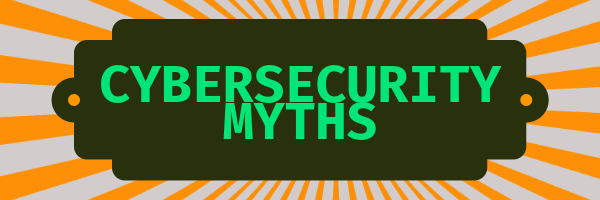Cybersecurity threats are quickly evolving, but some of the most persistent dangers come from outdated ideas about what keeps us safe online. Even in 2025, misconceptions about hacking, privacy, and online protection mislead many people. Understanding these cybersecurity myths is essential if you want to protect your personal information and digital security.
Here are five common cybersecurity myths and what you should know instead.
Myth #1: Cybercriminals Only Target Large Companies
It's a common belief that hackers are only interested in major corporations, but the reality is far different. Individuals and small organizations are often in the crosshairs of cyber attackers. Why? Because hackers frequently use automated tools that scan the web for easy targets, anyone with a digital presence or a vulnerable device is at risk. Cyber threats don't discriminate based on the size of the target.
Myth #2: Antivirus is Enough to Keep My Devices Fully Secure
Antivirus programs are important, but they're not a cure-all. Relying solely on antivirus software is like locking your front door but leaving your windows wide open. Today's sophisticated threats require a layered defense:
1. Use strong, unique passwords
2. Enable two-factor authentication wherever possible
Be alert for suspicious email attachments and links. No single security measure can provide full protection. Combining multiple strategies is the best way to stay ahead of cyber threats.
Myth #3: Reusing Strong Passwords is Safe
A strong password is good, using it everywhere is not. Reusing the same password on different sites puts you at serious risk. If just one site is breached, hackers can try your passwords on your other accounts, a tactic know as "credential stuffing." The smarter move? Use a password manager to generate and store unique, complex passwords for every site and app you use.
Myth #4: Incognito Mode Provides Full Anonymity
Private browsing modes like incognito can help keep your web history off your device, but that doesn't mean you're invisible online. Your activity is still visible to your internet service provider, websites, and even some trackers. If you're aiming for greater privacy, explore a trusted VPN (Virtual Private Network) service to help protect your browsing activity from prying eyes.
Myth #5: Software Updated Can be Postponed Without Consequences
The pesky update notification shouldn't be ignored. Many cyber-attacks take advantage of vulnerabilities in outdated software. Delaying updates leaves your computer or phone open to known security threats. Make it a habit to regularly update your operating system, apps, and devices, think of it as routine maintenance for your online safety.
Bottom line: Cybersecurity isn't about relying on a single tool or trick, it's about developing informed, proactive habits. By recognizing and moving beyond these common myths, anyone can strengthen their online defenses and stay safer in today's digital world.
Stay informed. Stay secure.
Ready to make security second nature? Enroll in Centriq's Cybersecurity Specialist Program today and become a defense hero for yourself and others.

